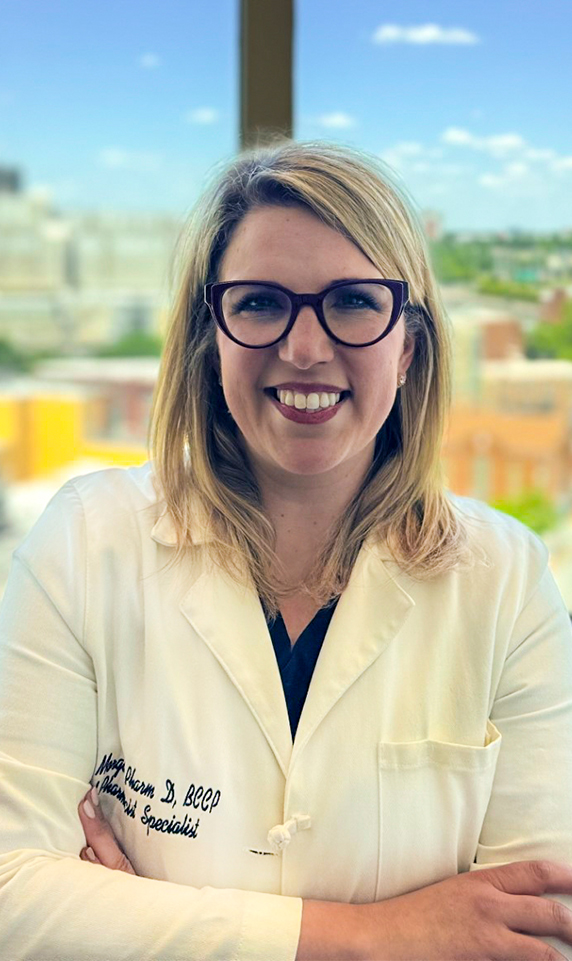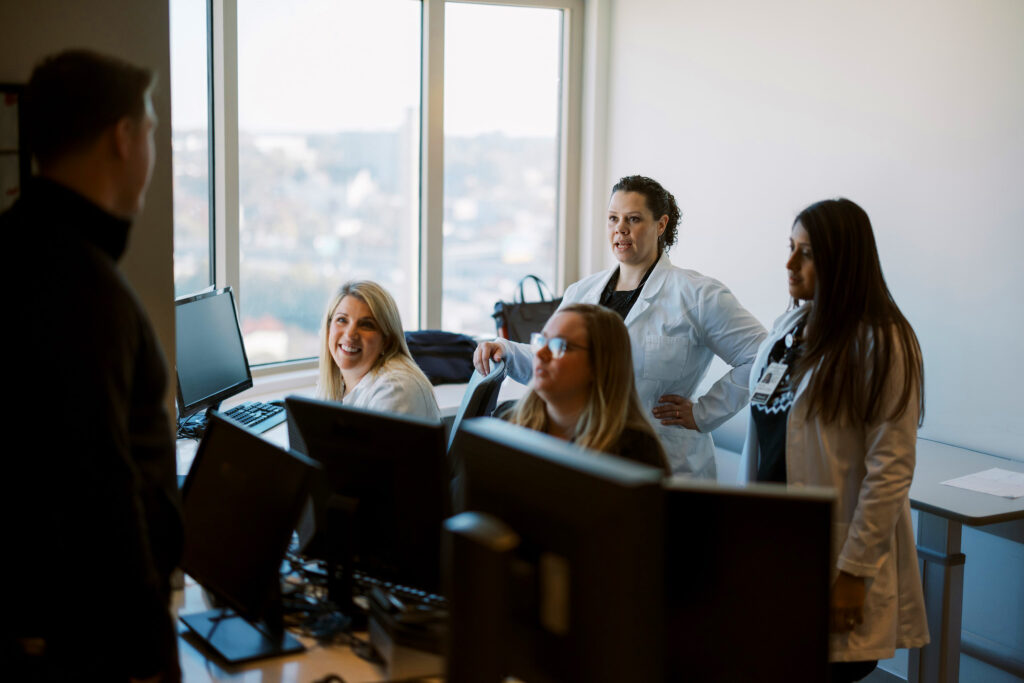


PHARMACISTS UP CLOSE
Olivia “Libby” Morgan,
PharmD, BCCCP, BCGP
“I always had a passion to help others and serve my community.”
-Dr. Libby Morgan
If you walked into the Marcus Stroke and Neurosciences Center at Grady Memorial Hospital in Atlanta, GA , there’s a good chance you’d get to experience Dr. Olivia “Libby” Morgan’s passion for service and helping her community.
Dr. Morgan is a Neurology Clinical Pharmacist who focuses on providing care for stroke, multiple sclerosis, epilepsy, and other patients. As a key part of a hospital team, Dr. Morgan and other hospital and health-system pharmacists like her collaborate closely with physicians, surgeons, nurses, and patients to develop and implement treatment plans. When asked about her role, she likes to use a sports analogy to explain.
“I work with your providers as the medication expert. Your healthcare team is like a football team. The physician is the quarterback and I’m part of your special teams. I’m your medication specialist.”
Your healthcare team is like a football team. The physician is the quarterback and I’m part of your special teams. I’m your medication specialist.”
Dr. Morgan’s work with patients doesn’t always require a quarterback, either. “I’ve established a collaborative practice where I can see my own patients and have dedicated visits to get to know them and their situation.”

It’s especially important for Dr. Morgan to get to know her patients because she treats so many conditions that affect the brain. She understands that subtle differences in personality and mood can be a side-effect or a sign that your medication plan needs to be adjusted. It gives her a signal to make changes or recommendations to your treatment. So Dr. Morgan gets involved early in your care and maintains a relationship throughout your journey.
“I give patients my direct number to call and ask questions regarding treatment therapy, and find direction for other questions. I have patients I’ve seen for years – sometimes I’m the only member of their care team that is consistent from year to year.”
I have patients I’ve seen for years – sometimes I’m the only member of their care team that is consistent from year to year.”
And Dr. Morgan is more than a medication expert. She works with patient assistance programs to provide medicine for reduced, or even no cost to those who can’t afford treatment. Dr. Morgan says it’s important for pharmacists to consider your personal situation and needs when developing your treatment plan.
“I know that you probably look up possible treatments for your condition and that you’re likely shocked when you realize that some of the treatments could cost hundreds of thousands of dollars a year. So, I will tell patients up front, I understand your fears and concerns and that I will never push you into taking a particular drug. I want you to know that I will never make you choose between food on the table and treating yourself.”
I understand your fears and concerns and that I will never push you into taking a particular drug.”
In addition to her advocacy, Dr. Morgan also educates patients and their loved ones on treatment plans. Because when they understand how and why medications work, they’re more likely to experience better outcomes.
For Dr. Morgan, being a hospital and health-system pharmacist has always meant being an expert in your complete care, not just your medication, so that you have that extra layer of confidence that is so important to healthier outcomes.
“I think pharmacy has largely been known for our dispensing role, but as you get to know me you learn I’m much more. I’m a neurology clinical pharmacist, a medication expert, and a member of your care team. I want you to know that I’m always going to be there for you.”
And for Dr. Morgan, that’s what it means to serve her community and to be your pharmacist.
